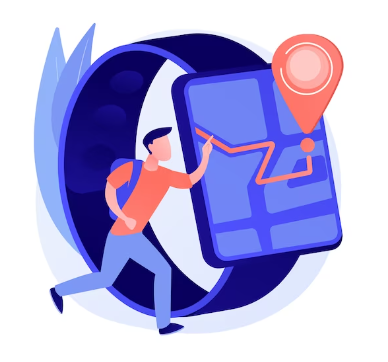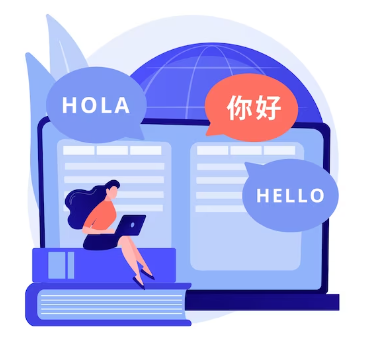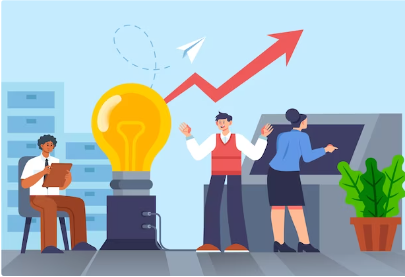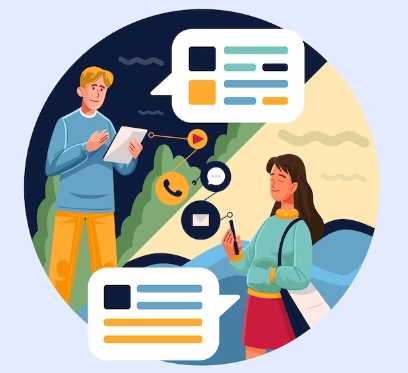Unveiling the Future: Exploring Generative AI's Potential
 valentine Gatwiri
valentine Gatwiri
The annual Google I/O conference is renowned for unveiling cutting-edge technological advancements, and the 2023 edition did not disappoint. This year, the spotlight was on artificial intelligence (AI) and the remarkable strides made in leveraging its potential. From advanced language models to immersive exploration experiences and breakthroughs in language translation, these AI innovations are poised to shape our future in profound ways. In this article, we will dive into the transformative impact of these advancements, highlighting their potential across various domains and reflecting on the implications they hold for our society.

Advanced Language Models
Advanced Language models can perform a range of language-related tasks, such as text completion, summarization, sentiment analysis, language translation, and even creative writing. They can generate human-like text in different styles and tones, mimicking specific voices or authors.
One of the standout developments showcased at Google I/O 2023 was the advancement of language models powered by AI. Models such as PaLM 2 have evolved to become highly capable across various tasks, enabling users to generate content, comprehend complex code, and communicate more effectively. Bard, a conversational AI experiment running on PaLM 2, is an example of these models' potential to enhance code comprehension and even aid in creating chess moves. These language models empower individuals and businesses to unlock new levels of productivity and creativity.
Immersive Exploration

The potential of AI for immersive exploration was vividly demonstrated through Google's AI-powered Maps. With the introduction of the Immersive View feature, users can now go beyond traditional navigation and obtain a comprehensive overview of their journey. Whether walking, cycling, or driving this bird's eye view allows users to zoom in and examine their route, while real-time data on air quality, traffic, and weather ensure informed decision-making. The implications for travel planning, urban mobility, and sustainable transportation are immense, promising to revolutionize the way we explore and navigate our world.
Art
One of the most captivating aspects of Generative AI lies in its ability to unlock new realms of imagination. Through sophisticated algorithms and vast datasets, Adobe Firefly and Bard can generate highly realistic artwork, and Artists and designers will embrace this technology as a collaborative tool, leveraging its capacity to inspire, enhance, and augment their creative processes. By tapping into Generative AI, individuals, and industries alike can push the boundaries of their imagination and create truly innovative works.
Language Translation Breakthroughs

Language barriers have long been a challenge in our increasingly interconnected world. However, AI-powered language translation showcased at Google I/O 2023 offers a glimpse into a future where communication transcends linguistic boundaries. With advancements in natural language processing and machine learning, translation tools are becoming more accurate, intuitive, and accessible. This has the potential to foster cross-cultural understanding, facilitate global collaboration, and bridge the gap between diverse communities.
Economic Transformation and Business Innovation

AI-driven innovations offer immense potential for economic transformation and business innovation. Companies can leverage generative AI platforms, like the ones Google provides, to automate processes, synthesize and organize information, and create personalized customer experiences. This leads to improved operational efficiency, enhanced customer engagement, and the development of innovative products and services. The use of AI in decision-making, predictive analytics, and data-driven insights empowers businesses to adapt and thrive in an increasingly competitive and data-rich landscape.
Societal Implications

As AI continues to evolve and spread through various aspects of our lives, it is crucial to consider the broader societal implications. Ethical considerations surrounding data privacy, algorithmic biases, and responsible AI deployment come to the forefront. Google's commitment to transparency, responsible AI practices, and addressing biases is evident through initiatives like watermarking and metadata in synthetic content generation. As users and stakeholders, it is essential to be vigilant, engaged, and actively participate in shaping the ethical frameworks that govern AI applications.
Ethical Considerations
Bias: Generative AI systems are trained on large datasets, which can inadvertently perpetuate biases present in the data. Addressing bias requires careful curation of training data and ongoing evaluation to prevent discriminatory outcomes. Developers must strive to ensure fairness and inclusivity in the generated content and actively involve diverse perspectives in the AI development process.
Ownership and Plagiarism: Generative AI blurs the lines of originality and raises questions of ownership. As AI systems create content that closely mimics human creativity, distinguishing between AI-generated and human-generated work becomes crucial to protect intellectual property rights and avoiding plagiarism. Establishing clear guidelines and legal frameworks surrounding ownership will be essential.
Accountability: Generative AI introduces challenges in determining accountability for the content it produces. If an AI system generates harmful or misleading information, who should be held responsible? Developers, users, or the AI itself? We need to establish frameworks that outline responsibility, transparency, and mechanisms for addressing unintended consequences.
Psychological Impact: The potential for AI-generated deep fake videos, text, or images raises concerns about the psychological impact on individuals. Misuse of this technology can lead to misinformation, identity theft, and the erosion of trust in digital media. Educating the public about the existence and implications of generative AI is crucial to foster critical thinking and media literacy.
Conclusion
The AI innovations unveiled at Google I/O 2023 have sparked a new wave of possibilities and set the stage for a transformative future. Advanced language models empower users to create, comprehend, and communicate more effectively. Immersive exploration experiences redefine how we navigate and interact with our surroundings. Breakthroughs in language translation foster global connectivity and understanding. However, alongside these advancements, it is vital to remain aware of the ethical implications and collectively ensure responsible and inclusive AI deployment. As we embrace the potential of AI, let us navigate this path mindfully, leveraging its benefits to build a better future for all.
Subscribe to my newsletter
Read articles from valentine Gatwiri directly inside your inbox. Subscribe to the newsletter, and don't miss out.
Written by
